
I’m only going to post the extracts from this article where Brady talks about his inspirations for the film, why he filmed it the way he did etc.  And I strongly recommend if you don’t want spoilers do not click on the source link to read the entire article because Nicholas Wennö hasn’t advised that there is a major spoiler in it.  Of course if you don’t mind the ending of the film being spoilt [unlike me who is not happy Jan] then by all means click away.  From Nicholas’s interview [Bing & Google translation]:
“”No one is born an extremist,” reads the headline on the website of National coordinator against violent extremism. The page continues: “Together we can prevent violent extremism. Through prevention, we will strengthen the individual and society. ”
The actor Brady Corbet would probably agree on most things. Today is the premiere of his mysterious and strange directorial debut “The Childhood of a Leader” … following an unstable young boy’s gradual road to fascism. A sort of “scenes from a childhood” which borrows its name from Jean-Paul Sartre’s short story from 1939 about a weak and insecure young man who embraces an anti-Semitic and fascist ideology.
– The whole concept of the movie was to avoid anything that was psychological, which is a bit of a paradox for something that is basically a kind of psychodrama, says Brady Corbet sitting in a hotel at the Avenue in Gothenburg with black beanie, red scarf and a pinstriped jacket.
Corbet has made a name for himself as a reliable independent actor in films like “Melancholia,” “Eden,” “Clouds of Sils Maria” and “Tourist”. Some may remember Corbet as one of the two psychos who terrorizes a bourgeois family with golf clubs in Hollywood version of “Funny Games” (2007).
“The Childhood of a Leader” also has obvious similarities with Michael Haneke’s Palme d’Or winner “The White Ribbon”, which depicts how the authoritarian upbringing and black pedagogy in a German village paved the way for the rise of Nazism in 30th century Germany.
– Yes, my film is totally related to “The White Ribbon”. The first seed for the film was sown too when I was working with Michael on “Funny Games”. During filming, he talked about how “The White Ribbon” was inspired by Volker Schlöndorffs “The Young Törless” by Robert Musil’s novel – one of the best movies ever made!
Corbets other major source of inspiration was Margaret MacMillan’s “Paris 1919: Six months that changed the world,” which is about the fateful Treaty of Versailles after the First World War.
– A fantastic and horrific book that haunted me for years. Unfortunately the peace treaty in Paris fucked up the entire Middle East, and anything else big time. Wilson, Lloyd George and Clemenceau did a very bad job – we have not come very far in 100 years, Corbet says, and continues:
– Of course, my film is a comment about what is happening in Europe and the United States today. About how everything repeats itself – the wars and misery – there is not much difference between the refugees in the old archives images and those we see today in the news.
[Spoiler] …“The Childhood of a Leader” is loosely based on standard of growing up for some of history’s worst despots, but Corbet waving away all attempts to provide some answers.
– Of course it is completely baroque to try to pinpoint a single event that defines a person’s life. Each part of Hitler has been the subject of a documentary, there is a desperate need to explain but it seems to be doomed to failure. As soon as you want to find a clear cause-effect relationship the carpet is pulled from under your feet, he says.
So the film would not feel like a stiff history lesson so he took away everything that felt didactic.
– My only focus was to depict a series of power struggles in this neurotic home – between the different characters on different planes. How something like invisible poison spread in the house, the boy is affected by the atmosphere in the house and how they are affected by his behavior, says Brady Corbet.
And just like his Austrian mentor, Corbet turn against Hollywood’s simplistic psychological models.
– Haneke’s way of handling allegory such as the “veiled threat” is totally brilliant, Corbet says, referring to the movie where Daniel Auteuil’s hosts suddenly muffled threatening messages that lead tracks to a past that he wants to suppress.
Last fall, “The Childhood of a Leader” won an award for best debut and best director in the section Orrizonti at the Venice Film Festival. Â Jury chairman Jonathan Demme called the movie “dazzling and exquisitely original” and compared Corbet with the young Orson Welles.
His meager budget of five million dollars to see the movie even though more expensive than it is. The stage design is meticulously carried out to the smallest detail. To get the right kind of creaky floor was built in several layers. The wall was painted many times to get different hues in various scenes were filmed on 35 mm film in low light.
– Anything to get that raw, gritty feeling of something alive – but it would feel bohemian chic Urban Outfitters, haha. I am very fond of Ermanno Olmi’s “Trädskoträdet” that only works with clay and wheelbarrows without any design, says Corbet.
If the set design is toned down and minimalist, Scott Walker soundtrack to the film the more vocal and expressionistic. Extremely high and incredibly close.
– Scott Walker is my hero – his music was an inspiration for the film. Scott is an expressionist artist, a maximalist whose music album is extremely addictive. I played a lot of avant-garde composers of the 1900s. Then he had a free hand to create the music he wanted.
– His music is so demanding that you can not hide it. It is not well integrated but lies there on top of everything. I did not want it to manipulate in any way. We also mixed the outside of the Dolby standard, which makes it sounds fucking loud! And we always fit to crank up to eleven at festival screenings, Corbet says, smiling.
As a director Brady Corbet is significantly closer to the European art film than American storytelling.
– I could make a traditional narrative film blindfolded, it’s so ridiculously simple. But I would rather see a crazy and beautiful film with the shortcomings of Leos Carax than even a mediocre Hollywood film. There is too much movies where two people sitting on a sofa and talking about his fucking relationship for two hours, says Brady Corbet and begin to complain about the condition of the feature film.
– The film is in real trouble. I am also a little disappointed in the crowd who say they do not have time to watch movies while they can stretch watch an entire weekend on a totally harmless detective series. It’s crazy. And such a brilliant director like David Fincher dedicated to making rubbish “Gone Girl”.
He leaves also on digital development.
– The digital revolution sucks! It is as if someone has printed an antidote to a disease that we never suffered. Now it’s all just about HD resolution, more and more. What the hell are you going to do more you fucking resolution? Projecting the film on a skyscraper? That it would cost too much bullshit! Like $30,000 in a million budget – saving on some drivers and dinners at home, says Brady Corbet.”
I have to agree with Brady about people not going to the cinema but binge watching entire TV series on their computers.  I’m old school  I like being at the cinema where my entire focus is on the film with limited distractions (looking at you chatterboxes who like to dissect the film whilst watching)





















 Turning the calendar page to March.
#Robert
Turning the calendar page to March.
#Robert


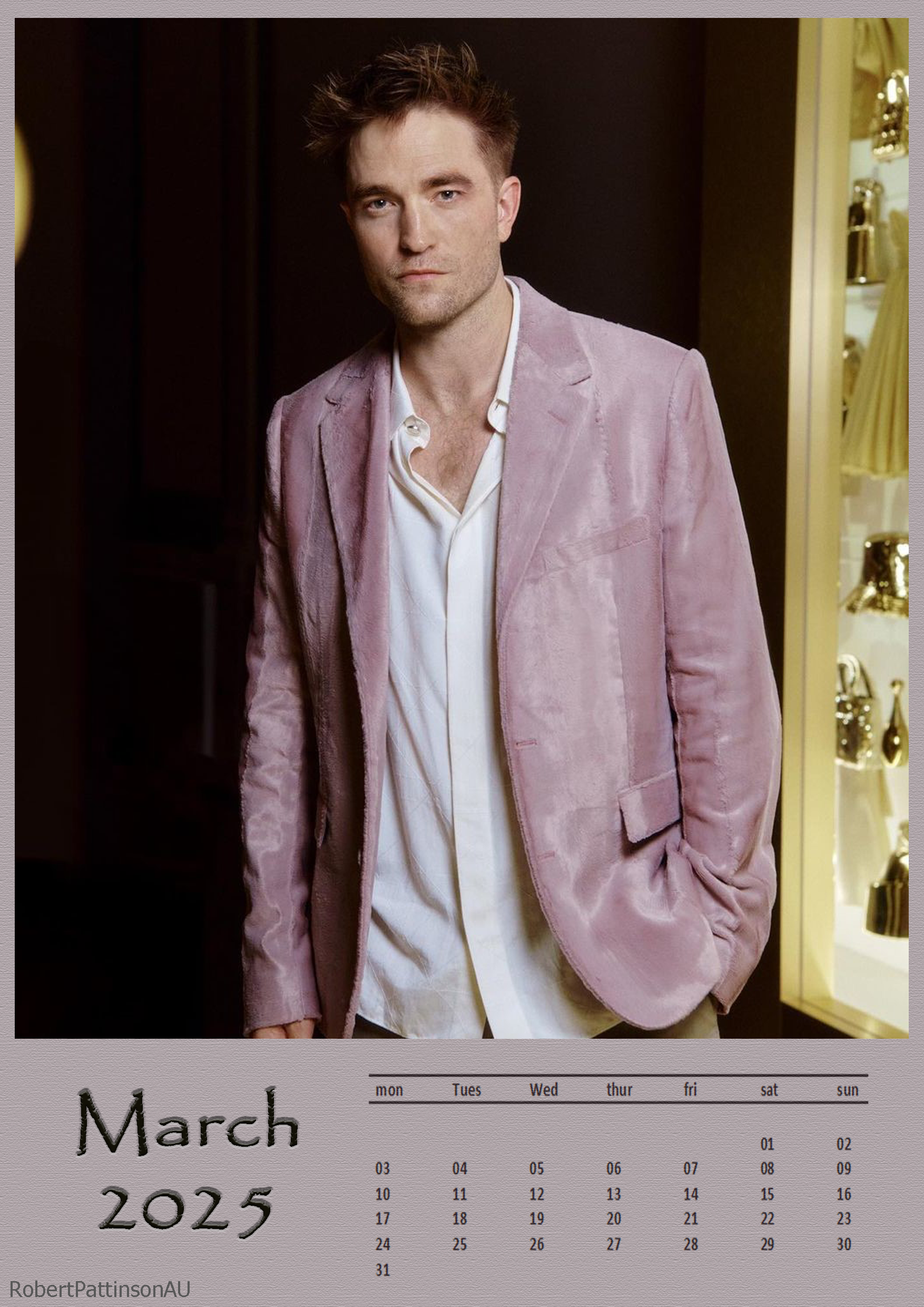
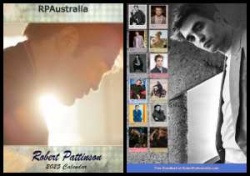






















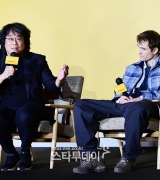
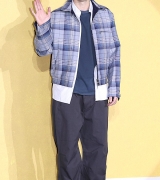


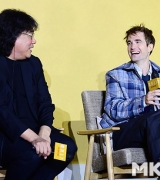
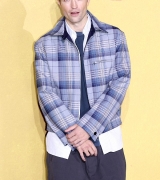







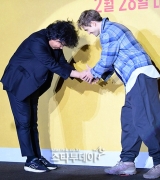
Posted on May 15, 2016
I’ll have to wait for this on dvd. Don’t see my cinema picking it up
Posted on May 15, 2016
@Sare surprisingly it doesn’t seem to have an Australian distributor yet.